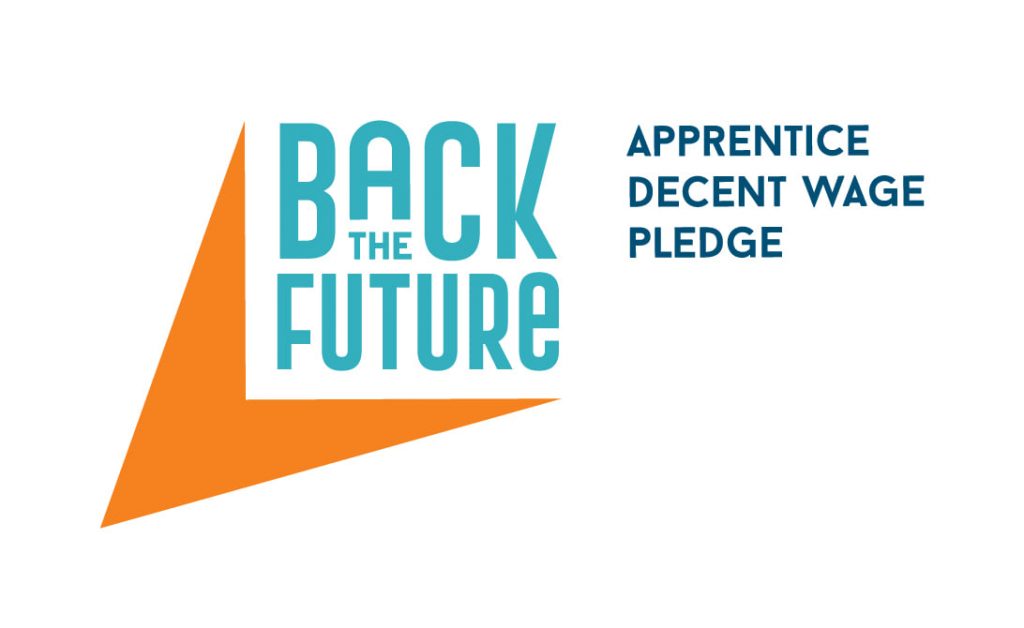There are many young people turning down or giving up on apprenticeships because they can’t afford to live on the apprentice minimum wage that has been set by Government. If you work for an employer that employs apprentices, please share this.

Our good friend Sally Williams, Head of Strategic Partnerships & SME’s at CSR Scientific Training is spearheading Back The Future, a new campaign to try and address low apprentice wages and bring about some change in this space. We’ve been working with Sally to develop the brand and messaging.

Employers are invited to sign up to say that they ‘Back the Future’ by signing the Apprentice Decent Wage Pledge to enable better social mobility and fair wages for all.
“A collective of employers and apprenticeship training providers who believe we should be backing the UK’s future talent pipeline by not simply paying apprentice minimum wages have come together to create The Apprentice Decent Wage Pledge. Their aim is to Back the UK’s Future by providing decent and fair pay for all apprentices employed in the UK”. Says Sally.
The apprenticeship wage increased by 6.4 per cent in April this year to £4.15, giving apprentices working a 40-hour week an annual salary of just £8,632. The current minimum wage for 18- to 20-year-olds is £6.45, which rises to £8.20 at the age of 21. There is a big disparity in apprentice wages and the Back the Future team are trying to address this.
The team behind the pledge campaign are committed to addressing social mobility issues by ensuring individuals are not put off applying for apprenticeships because pay is too low. They are asking employers to sign up to the pledge and commit to not paying the apprentice minimum wage but to pay a fair and decent wage.
Young Labour and GBM Young Members committee member Jawad Khan said “We’re already seeing some awful employment practices from some companies. We need to make sure that, post-Covid, companies don’t use the apprenticeship levy as a way to put in cheap labour or generally to get around paying a decent wage.”
Robert Halfon, chair of the Education Select Committee and a former skills minister said: “The number of apprenticeship starts has fallen steadily among all age groups since 2015/16, from 509,000 to 323,000 in 2019/20. That’s an overall decline of 37 per cent. This fall was particularly acute for the most disadvantaged young people aged under 25 who fell by 52 per cent.
Former Secretary of State for International Development and MP, Rt Hon Andrew Mitchell MP said: “New apprenticeship opportunities for those looking to start or change a career are vital for the UK post-Brexit economy, whilst poor national minimum wages can remove opportunities for the least fortunate. It is often the case that some companies see the minimum wage for apprentices as a way to increase profits, instead of utilising them to invest in talented people. That’s why I am pleased to support the “Back the Future” campaign and its important Apprentice Decent Wage Pledge, who are persuading businesses to give a decent apprentice wage and equal opportunities to all.”
If your organisation is committed to Backing the Future you can sign up to the pledge here: http://www.apprenticedecentwagepledge.com